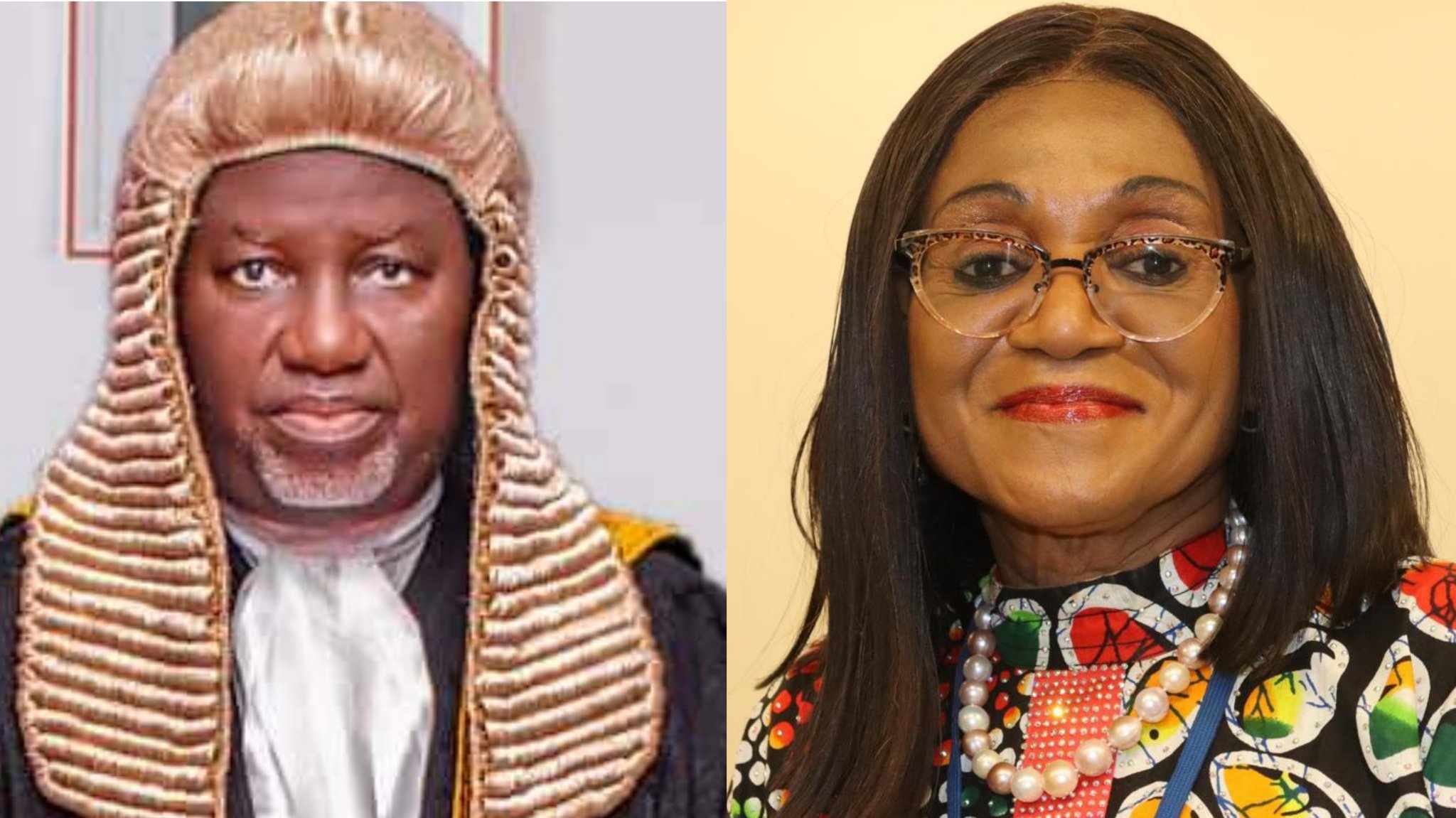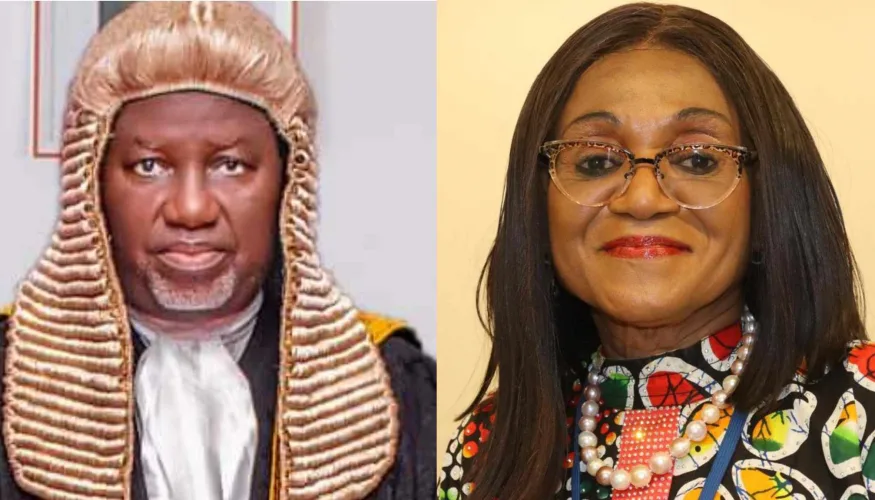NLS AGC: ‘ARTIFICIAL INTELLIGENCE AND EMERGING CONTINENTAL LEGAL PRACTICE,’ BY UGOJI EZE
ARTIFICIAL INTELLIGENCE AND EMERGING CONTINENTAL LEGAL PRACTICE
By Dr. Ugoji Adanma Eze
“Afriwise’s collaborative ecosystem affirms that the best solutions for Africa come from Africa and how, once again, Africa is leading the way globally, not in spite of but exactly because of its unique challenges and versatile dynamics.”
– Afriwise CEO Steven De Backer
“Promoting equal, meaningful access to legal representation in the United States Justice system is critical to ending poverty combatting discrimination and creating opportunity.”
– Center For American Progress
Introduction
As world leaders continue to strategize on how to build back better from the impacts of the COVID-19 pandemic, it is important that we do not let short term post pandemic measures prevent us from addressing the longer-term emergence of Artificial intelligence and the emerging continental legal practice.
Artificial Intelligence is creating dynamic new opportunities and indeed challenges in the legal sphere; with a diverse range of issues emerging from the rapidly evolving global legal and regulatory environment.
Afriwise was launched in 2018, establishing an innovative approach to maintaining and building a cross -border legal-intelligence database in Africa; Leading organizations rely on to discover answers to their legal questions.
Africa is the perfect innovation incubator, despite the lack of up -to -date and quality legal information and distinctive legal challenges: such as incomplete and incoherent legal frameworks, unusual concepts, lack of transparency and critically established practices that differ from written laws.
The convergence of AI and the legal practice includes:
Cybersecurity and Data Privacy
Intellectual Property
Technology Transactions
Corporate
Governance and Regulatory Compliance
Data Ethics and Fairness.
Artificial Intelligence (AI) is poised to fundamentally reshape the practice of law on the African continent.
GPT-3 AND GPT-4d, demonstrate widely available technology can perform sophisticated research and writing tasks, with a proficiency which previously required highly trained individuals.
In Africa, law firms that effectively leverage emerging AI technologies, will be able to offer services at lower cost, higher efficiency and above all with higher odds of favorable outcomes in litigation.
Conversely, law firms that fail to capitalize on the power and emergence of AI, will be unable to remain cost – competitive, losing clients and in the long run undermining their ability to attract and retain talent.
What Is Required?
Resilient recovery from the impacts of the COVID-19 will not be possible without conscious efforts to boost global resilience on all fronts, social, economic, digital, scientific, innovative and technological. It is imperative to take strategically calculated and measurable collective actions to support the efforts of developing countries in special situations. It is pertinent to work together to mitigate the impacts of the gap in Science, Innovation and technology in developing countries.
There is a need to support these groups of developing countries to catch up to the emerging scientific, technological and innovative transformations; and to improve access for researcher and scientists in developing countries to publication, data and STI initiatives.
Partnerships also plays an important role, thus enabling researchers in developing countries with access to databases, information resources, academic and professional journals.
Efficiency Improvements:
AI can be used to swiftly produce initial drafts, advancing arguments, citing the pertinent case law, rebutting arguments advanced by opposing counsel.
In short, AI will make it much more efficient for attorneys to draft documents requiring a higher degree of customization; such as contracts, responses to interrogatories, summaries for clients; visual aids for use in trial.
During trials, AI could be used to analyze a trial transcript in real time and also provide input to attorney’s that can assist them select which questions to ask.
The Legal Tech startup Ecosystem
With the emergence of AI on the continental practice, there will inevitable be the creation of new legal tech companies. For example, Casetext, is part of what will become a rapidly emerging ecosystem of legal tech companies, offering AI products based on large language models.
Opportunities also exists to utilize AI for more fully automated provision of legal services.
Legal and indeed policy frameworks will need to be updated to facilitate innovation in this space, while also identifying and protecting against the associated risks.
New Skilled Required
The development of new skills will be required including knowing how to select the correct AI tool for a specific task; knowing how to construct the correct queries and evaluate the quality, relevance and above all accuracy of the responses and being able to synthesize the overall results into a cohesive and actionable picture. The issue of confidentiality also arises; thus, Attorneys needs to pay attention to confidentiality. Law firms and schools need to adapt to the changing landscape; and ensure that they are abreast with the new tools in this new technological and innovative environment.
Broadening Access to Legal Services.
AI has the potential to broaden access to legal services, which would otherwise be unavailable to numerous individuals and small businesses. AI will make it less costly to initiate and indeed pursue litigation.
Human Intelligence Is Still Imperative.
It would be foolhardy to utilize the extraordinary advances of AI to minimize the significance of the human element in the practice of law. AI is reshaping the landscape for both providers and users of legal services.
Africa Leads the Way for Artificial Intelligence in Legal Practice
Whilst on the one hand, there are challenges in African legal context, these challenges have indeed created fertile ground for building one of the world’s innovative legal -tech platforms: Afriwise.
Afriwise is set to leapfrog as a global leader, once it has acquired the leading AI -based legal software developer Pythagoria, and releasing its AI on Afriwise’s unmatched and unraveled database of African legal information.
Artificial Intelligence You Can Trust.
Afriwise has managed the great feat of creating a unique model which combines legal-tech, the deep intelligence of eminent African Lawyers and AI; which can guarantee the integrity of its underlying information.
Pythagoria
Is an AI -based legal software developer, with a wide comprehension of the legal world. The collaboration with Afriwise will benefit the African continent as a whole.
Data Integrity at Its Core
Afriwise is harnessing the power of Pythagoria by creating solutions such as AI -driven regulatory monitoring, real -time legal analysis, based on legislation, lawyers input, case law and AI -based API’s for developing smart applications.
The lawyers in Afriwise ecosystem know the legal problems in their respective countries better than anyone else.
AI Kept in check by human expertise
Afriwise does not need to build in the guardrails, which other AI-powered legal tech companies need to safeguard; as Afriwise has a unique way of producing and indeed maintaining legal intelligence, in collaboration with law firms, which provides significant benefit for the use of AI.
In short Afriwise, gains from legal information which has been fact-checked, prepared and updated by leading lawyers.
Guiding Questions
a. How can we strengthen resilience considering the decade of action and delivery for the SDGs?
b. How can we help countries in special situations to better adapt to and cope with the gaps to ensure that no one is left behind?
C. How can we limit the consequences of inequalities and or prevent the potential for deterioration of the situation, particularly for women and girls?
d. How can we capitalize on our efforts to recover better from the COVID-19 pandemic induced global shocks to fix the gaps and strengthen resilience to inequalities in developing countries.?
e. Who really benefits from these innovations?
F. How many of us will ultimately profit from this Fourth Industrial Revolution, or from the green technology?
h. How can we ensure that those in developing countries are partakers in the groundbreaking advances in Artificial intelligence, robotics, Machine learning. biotechnology and the internet revolution?
Eze, a senior lawyer, presented the above paper at the recent Nigerian Law Society (NLS) Annual General Conference.
To join our CITY LAWYER Channel on WhatsApp, click here
To join our Telegram platform, click here
COPYRIGHT 2022 CITY LAWYER. Please send emails to citylawyermag@gmail.com. Join us on Facebook at https://web.facebook.com/City-Lawyer-Magazine-434937936684320 and on “X” (TWITTER) at https://twitter.com/CityLawyerMag. To ADVERTISE in CITY LAWYER or for Special Features, please email citylawyermag@gmail.com or call 08138380083.
All materials available on this Website are protected by copyright, trade mark and other proprietary and intellectual property laws. You may not use any of our intellectual property rights without our express written consent or attribution to www.citylawyermag.com. However, you are permitted to print or save to your individual PC, tablet or storage extracts from this Website for your own personal non-commercial use.

